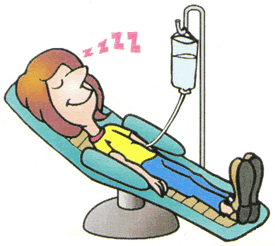Everything You'd Ever Need to Know About Dentures!
What are dentures?
A denture is a removable replacement for missing teeth. There are two main types of dentures: full dentures and partial dentures. Full dentures are used when all the teeth are missing while partial dentures are used when some natural, healthy teeth remain.
Does insurance cover the cost?
Many dental insurance companies pay for a portion of the cost of dentures. Since all insurances are different it’s important to check with your carrier to find out what they will cover. We also offer financing for patients without dental insurance.
Will my dentures need to be replaced?
Dentures will need to be relined, rebased or remade over time due to normal wear and tear. It’s important to replace severely worn or ill-fitting dentures before they cause problems such as sores and infections.
What do dentures feel like?
At first, a new denture will probably feel slightly awkward and loose while your cheek and tongue muscles learn to keep the dentures in place. It only takes a few weeks before you become fully accustomed to your new dentures. It is also very common to feel irritation or soreness at first, if these problems persist you should revisit your dentist. An overdenture will never feel loose or move around your mouth and may be the best option to solve discomfort.
Can I eat while wearing dentures?
Yes! Learning to eat with your dentures will take some practice- you should start with soft foods cut into small pieces and chew slowly. You will always have to be careful of very hard foods and hot food and beverages. Many people who have trouble eating with full dentures find that an overdenture is the better option for them.
How often should I visit my dentist?
It is recommended that denture wearers visit the dentist once a year.
Will they change how I look and speak?
 Like eating, speaking with dentures will need some practice. Properly fitting dentures will not alter your speech after you get used to wearing them. Your dentures will be made to very closely resemble your natural teeth and will not hinder your appearance or look fake or noticeable- they may even improve the look of your smile and profile! See the below pictures showing how dentures improve the look of your face and profile. People who do not replace their missing teeth tend to have a “sunken in” look and can greatly improve the look of their face by using dentures.
Like eating, speaking with dentures will need some practice. Properly fitting dentures will not alter your speech after you get used to wearing them. Your dentures will be made to very closely resemble your natural teeth and will not hinder your appearance or look fake or noticeable- they may even improve the look of your smile and profile! See the below pictures showing how dentures improve the look of your face and profile. People who do not replace their missing teeth tend to have a “sunken in” look and can greatly improve the look of their face by using dentures.
A Family Dental Care Center: Dr. Seth Rosen
2030 West Main St.
Norristown, PA 19403



